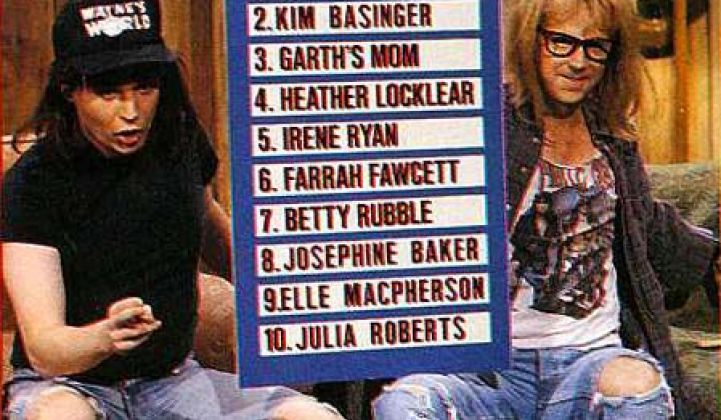1.) Polysilicon Prices Hit Record Low in 2011; Will Head Even Lower, Enabling $0.70/W PV in 2012
The analysts at GTM Research saw that crystalline silicon (c-Si) module prices fell from $1.80 per watt at the start of 2011 to $0.90 per watt by the year's end. The group suggested $0.70 per watt modules would be available at the end of 2012 -- and they were spot on.
2.) Serious Energy in Serious Trouble
Jeff St. John takes a careful look at Serious Energy. The green drywall and windows company spent the past few years pushing into building energy efficiency software and financing, and then abandoned those lines of business to refocus on its building materials core. It was a stunning reversal for the Sunnyvale, Calif.-based startup with $140 million in VC cash. Over the past year, Serious has been bleeding talent, losing top executives from including key players in its energy efficiency software development team and sales team.
3.) Who Reigns Supreme in Residential Solar?
In this analysis by Andrew Krulewitz from earlier this year, SolarCity was revealed to have a 14 percent market share for residential solar in 2011. He wrote, "SolarCity is already far ahead of the pack and well on its way to conquering the small-commercial market, as well." SolarCity and its bankers aim to price its IPO tonight and float the stock on Wednesday.
4.) Twin Creeks: Secretive Solar Equipment Firm Unstealths
Twin Creeks Technologies was a stealthy thin-silicon via ion-implant equipment startup with lots of venture capital. Shortly after a blustery PR-heavy entrance, the firm altered its ambitions and sold itself in a fire sale to GT Advanced Technology for $10 million.
5.) Nest Labs' Thermostat: Sexy? Yes. Functional? Maybe not.
I reported on the world's sexiest thermostat from Nest Labs with a bit of skepticism. Could a well-designed thermostat become a fetish item like the iPhone? I wrote, "It will be an enormous challenge for Nest to recreate the excitement of an entertainment product in a utilitarian device like a thermostat."
It looks like I might have been wrong.
When I last spoke with the Palo Alto, Calif.-based Nest, the firm noted an energy savings of 20 percent. That's the same as a conventional programmable thermostat -- but according to Nest, only 11 percent of owners use their thermostat correctly. Nest automates the process with some wireless data crunching and sensors. Reports from GigaOm claim an energy savings of 20 percent to 30 percent and sales volumes in the "hundreds of thousands."
That sounds like a successful cleantech startup.
6.) The Networked Grid 100: The Movers and Shakers of the Smart Grid in 2012
Who are the leaders of the smart grid industry? Read this to find out.
7.) Candidate Romney’s Energy Plan
Mitt Romney accused the Obama administration of having an “unhealthy obsession with green jobs.” Unfortunately, for Romney, swing states with wind industries shared this same obsession, and that may have cost Romney some votes.
8.) MiaSolé Sold to China's Hanergy for $30 Million
MiaSolé, the most technologically and commercially advanced VC-funded CIGS thin film firm, sold to China's Hanergy for $30 million. MiaSolé has raised in the neighborhood of $500 million in VC funding since its founding in 2004. Investors included Voyageur Mutual Funds III, Kleiner Perkins, Firelake Capital, and VantagePoint Venture Partners. Board members include KP's John Doerr, Firelake's Marty Lagod, VantagePoint's Stephan Dolezalek, and Rob Chandra of Bessemer.
9.) High Speed Test Drive of Tesla Model S
A not entirely true story of a Tesla Sedan test drive and subsequent jail term.
10.) Who Are the Top Ten Vendors in Smart Grid?
GTM Research profiles the leading 150 smart grid vendors



